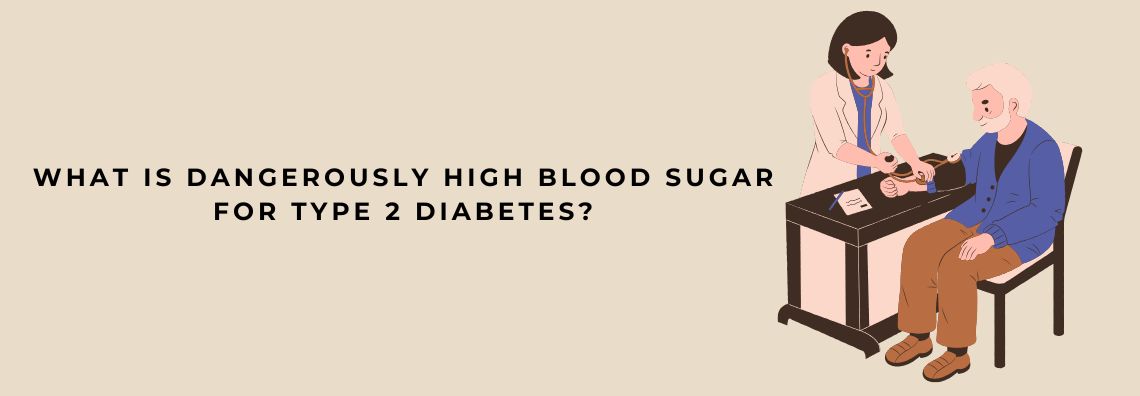
Having blood sugar levels or hyperglycemia above 180 mg/dL (10 mmol/L) two hours after a meal and blood sugar levels above 300 mg/dL (16.7 mmol/L) can be dangerous and require immediate attention, especially for people with type 2 diabetes.
Hyperglycemia affects people with diabetes. Several factors can play a role in it, including food, illness and diabetes. Skipping medications or not taking enough insulin to lower blood sugar can also lead to this condition. If left untreated, hyperglycemia can become severe and cause serious health problems, including diabetes complications, such as nerve damage, eye disease and kidney damage..
Explore the symptoms and causes of hyperglycemia in this guide. You need to see a healthcare professional for hyperglycemia or diabetes management.
Symptoms
Hyperglycemia generally doesn’t have symptoms until your blood sugar levels are high — above 180 to 200 milligrams per deciliter (mg/dL), or 10 to 11.1 millimoles per liter (mmol/L). The symptoms develop slowly and may be noticeable over days or weeks. The longer blood sugar levels stay high, the more serious the symptoms may become. People who’ve had type 2 diabetes for a long time may not show any symptoms regardless of high blood sugar levels, making it more important to seek medical advice.
Early signs and symptoms may include:
- Frequent urination
- Blurred vision
- Increased thurst
- Unsual tiredness
- Weakness
If you don’t consult on time, later signs and symptoms can show up and lead to toxic acids called ketones building up in the blood and urine. This condition is known as ketoacidosis, and symptoms can be:
- Bad breath
- Abdominal pain
- Nausea
- Vomiting
- Shortness of breath
- Loss of consciousness
Several things can lead to hyperglycemia. We will uncover the causes.
Causes of Hyperglycemia
Several factors can lead to hyperglycemia; some of them are listed below:
Diabetes
In diabetes, the body either doesn’t produce enough insulin or can’t effectively use the insulin it produces, leading to glucose buildup in the bloodstream, eventually causing high blood sugar levels.
Insulin-producing cells will be attacked and destroyed by the immune system, leading to a lack of insulin. This happens in type 1 diabetes. In type 2 diabetes, the body becomes resistant to insulin, meaning the cells don’t respond normally to its signals, and the pancreas may not produce enough insulin to compensate.
When there is a lack of insulin or the body can’t use it properly, glucose builds up in the blood stream, causing hyperglycemia. Take help for diabetes management.
Medicattions
Certain medications can lead to high blood sugar levels by impairing insulin senstivity, increasing glucose production, and directly affecting pancreatic cells. Medications like glucocorticoids can reduce the body’s sensitivity to insulin, meaning cells don’t respond as effectively to insulin, leading to a buildup of glucose in the bloodstream.
Diuretics can increase the liver’s production of glucose, further elevating blood sugar levels. Some medications can have a direct toxic effect on pancreatic beta cells, impairing their function and reducing insulin production. Ask the healthcare professional for advice.
Diet
Diet for diabetes management and blood sugar control is necessary. It plays an important role in overall health management. A diet high in processed carbohydrates and sugars can cause hyperglycemia because these foods are rapidly digested and absorbed, leading to a quick rise in blood glucose levels, especially in people with diabetes or insulin resistance.
When you take carbohydrates, your body breaks them down into glucose, which is absorbed into the bloodstream.. Insulin is responsible for glucose that enters the body’s cells for energy. People with diabetes have hyperglycemia because of the build-up of glucose in the bloodstream. Limit consumption of sugary drinks, processed snacks, fried foods, white rice, bread, pasta and foods with added sugar to manage blood sugar levels.
Illness
Illness can cause hyperglycemia because at the time you are sick, the body releases stress hormones to fight the illness, which can increase blood sugar levels and also make it harder for insulin to work effectively.
When you fall sick, your body gets stressed, and to deal with this stress, the body releases hormones like cortisol and epinephrine. The stress hormones can also make your body less sensitive to insulin, as a result, glucose builds up in the bloodstream, leading to hyperglycemia.
Take a proper rest, have adequate sleep, and perform yoga and meditation to control blood sugar levels. Stress-relieving activities can create a positive environment for your body, and they can be good for your overall health. For diabetes management, consult a healthcare professional who is specialised in dealing with the condition.